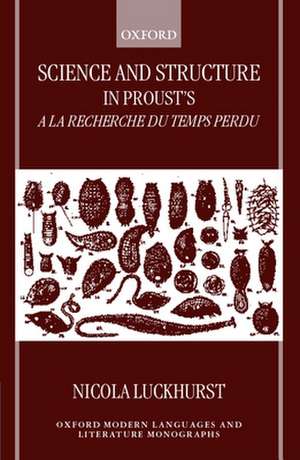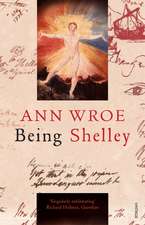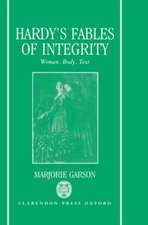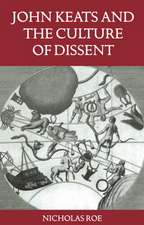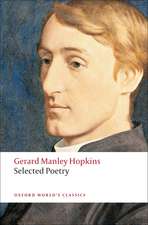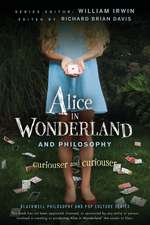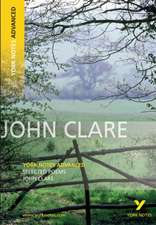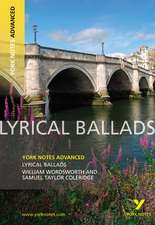Science and Structure in Proust's A la recherche du temps perdu: Oxford Modern Languages and Literature Monographs
Autor Nicola Luckhursten Limba Engleză Hardback – 17 feb 2000
Din seria Oxford Modern Languages and Literature Monographs
- 28%
 Preț: 498.33 lei
Preț: 498.33 lei - 28%
 Preț: 403.98 lei
Preț: 403.98 lei - 28%
 Preț: 472.87 lei
Preț: 472.87 lei - 28%
 Preț: 498.29 lei
Preț: 498.29 lei - 30%
 Preț: 529.12 lei
Preț: 529.12 lei - 27%
 Preț: 488.30 lei
Preț: 488.30 lei - 16%
 Preț: 471.17 lei
Preț: 471.17 lei - 28%
 Preț: 472.12 lei
Preț: 472.12 lei - 34%
 Preț: 1196.78 lei
Preț: 1196.78 lei - 34%
 Preț: 844.61 lei
Preț: 844.61 lei - 37%
 Preț: 875.43 lei
Preț: 875.43 lei - 34%
 Preț: 550.53 lei
Preț: 550.53 lei - 31%
 Preț: 339.43 lei
Preț: 339.43 lei - 34%
 Preț: 946.68 lei
Preț: 946.68 lei - 34%
 Preț: 977.57 lei
Preț: 977.57 lei - 31%
 Preț: 713.96 lei
Preț: 713.96 lei - 46%
 Preț: 447.51 lei
Preț: 447.51 lei - 47%
 Preț: 656.78 lei
Preț: 656.78 lei - 38%
 Preț: 327.25 lei
Preț: 327.25 lei - 34%
 Preț: 1169.33 lei
Preț: 1169.33 lei - 34%
 Preț: 1166.63 lei
Preț: 1166.63 lei - 34%
 Preț: 847.82 lei
Preț: 847.82 lei - 31%
 Preț: 861.06 lei
Preț: 861.06 lei - 27%
 Preț: 190.60 lei
Preț: 190.60 lei - 31%
 Preț: 363.64 lei
Preț: 363.64 lei - 23%
 Preț: 275.97 lei
Preț: 275.97 lei - 31%
 Preț: 786.79 lei
Preț: 786.79 lei - 34%
 Preț: 1167.72 lei
Preț: 1167.72 lei - 45%
 Preț: 468.18 lei
Preț: 468.18 lei - 34%
 Preț: 1109.57 lei
Preț: 1109.57 lei - 34%
 Preț: 1079.86 lei
Preț: 1079.86 lei - 30%
 Preț: 699.95 lei
Preț: 699.95 lei - 30%
 Preț: 628.12 lei
Preț: 628.12 lei - 34%
 Preț: 934.25 lei
Preț: 934.25 lei - 31%
 Preț: 625.03 lei
Preț: 625.03 lei - 34%
 Preț: 991.94 lei
Preț: 991.94 lei - 34%
 Preț: 816.41 lei
Preț: 816.41 lei - 34%
 Preț: 829.26 lei
Preț: 829.26 lei - 30%
 Preț: 773.81 lei
Preț: 773.81 lei - 34%
 Preț: 530.74 lei
Preț: 530.74 lei - 30%
 Preț: 658.73 lei
Preț: 658.73 lei - 34%
 Preț: 845.75 lei
Preț: 845.75 lei - 31%
 Preț: 802.74 lei
Preț: 802.74 lei - 34%
 Preț: 1034.42 lei
Preț: 1034.42 lei - 31%
 Preț: 387.21 lei
Preț: 387.21 lei - 51%
 Preț: 699.57 lei
Preț: 699.57 lei - 28%
 Preț: 462.34 lei
Preț: 462.34 lei - 34%
 Preț: 947.44 lei
Preț: 947.44 lei - 34%
 Preț: 887.47 lei
Preț: 887.47 lei
Preț: 1254.44 lei
Preț vechi: 1911.55 lei
-34% Nou
Puncte Express: 1882
Preț estimativ în valută:
240.04€ • 251.13$ • 199.40£
240.04€ • 251.13$ • 199.40£
Carte tipărită la comandă
Livrare economică 22-28 martie
Preluare comenzi: 021 569.72.76
Specificații
ISBN-13: 9780198160021
ISBN-10: 019816002X
Pagini: 276
Dimensiuni: 146 x 224 x 19 mm
Greutate: 0.43 kg
Editura: OUP OXFORD
Colecția OUP Oxford
Seria Oxford Modern Languages and Literature Monographs
Locul publicării:Oxford, United Kingdom
ISBN-10: 019816002X
Pagini: 276
Dimensiuni: 146 x 224 x 19 mm
Greutate: 0.43 kg
Editura: OUP OXFORD
Colecția OUP Oxford
Seria Oxford Modern Languages and Literature Monographs
Locul publicării:Oxford, United Kingdom
Recenzii
Interesting and timely study ... this is a very welcome contribution to Proust studies - not least for the connections made between Proust's writing and the theories of contemporaneous scientists, notably Poincaré
Luckhurst convincingly redraws the map to show the common geography of literature and science; any stodgy, pedantic hesitations are soon cast aside as Luckhurst guides us through the 'abundant metaphoric, speculative, and regulatory presence' of science in the recherche.
Luckhurst convincingly redraws the map to show the common geography of literature and science; any stodgy, pedantic hesitations are soon cast aside as Luckhurst guides us through the 'abundant metaphoric, speculative, and regulatory presence' of science in the recherche.
